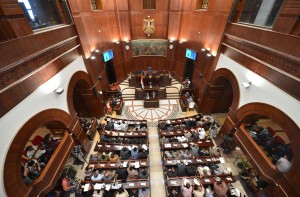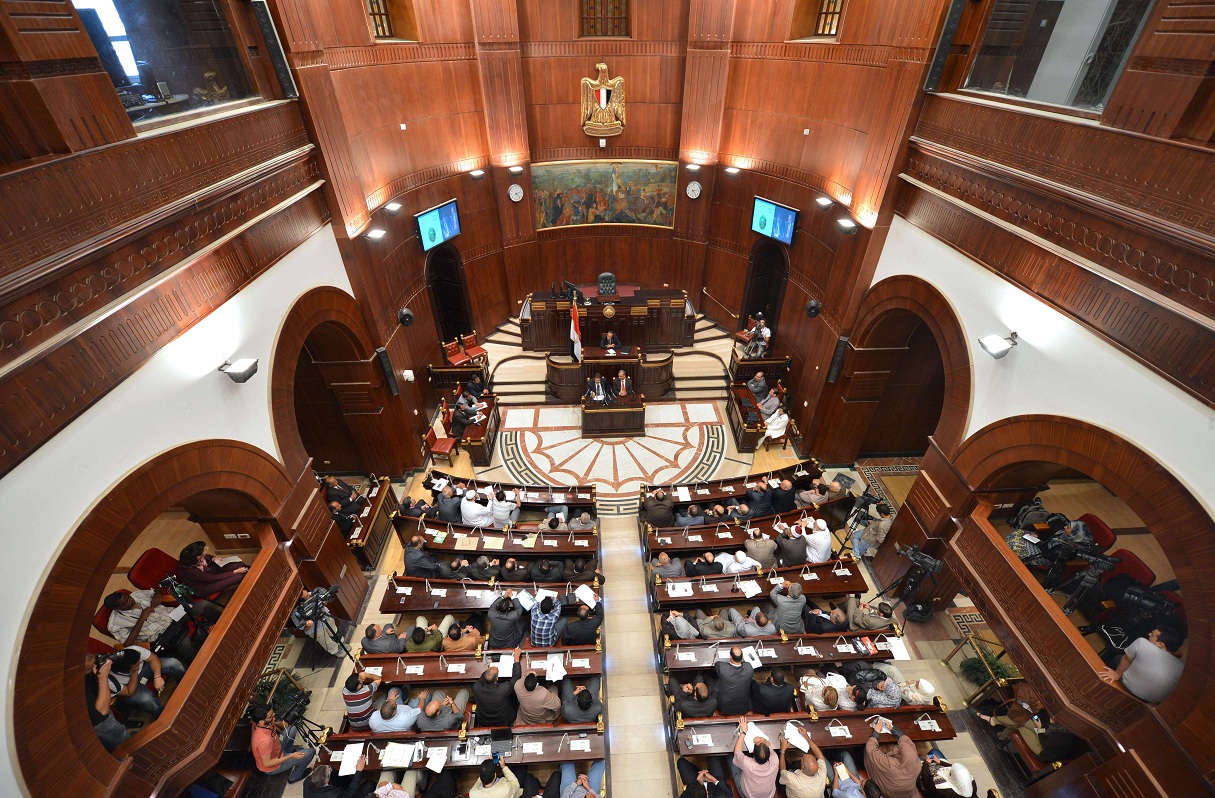
The Constituent Assembly faces a race against time as the Administrative Judiciary Court adjourned the case calling for the assembly’s dissolution to 23 October and reserved the session for a verdict.
In a general meeting on Tuesday, Constituent Assembly Chairman Hossam El-Gheriany announced the assembly would vote on the final draft of the constitution in mid November.
The assembly released a preliminary draft for public dialogue and internal discussion on Sunday, which has caused controversy as secular groups chided the draft for restricting freedoms, while Salafi groups condemned it for not properly applying Islamic Shari’a.
The threat of dissolution is at its peak now with the verdict scheduled for earlier than that. If the assembly is dissolved on 23 October, President Mohamed Morsy will be obliged to compose a new one.
An administrative court dissolved a previous assembly in April for having members of parliament make up half its 100 seats.
The court ruled that although the March 2011 Constitutional Decree gave parliament the right to elect the assembly, members of parliament could not elect themselves.
The current assembly also contains members of parliament, which is one of the reasons plaintiffs have filed over 40 cases calling for its dissolution.
Following the dissolution of parliament’s lower half, the People’s Assembly, the power to elect a Constituent Assembly transferred to the then ruling Supreme Council of the Armed Forces before Morsy reversed a military decree in August and granted the power to himself.
The current court case has been running since July. Plaintiffs said they were ready to give up their right to read the defence’s briefs if it would lead to a faster trial and quicker verdict.
One of the plaintiffs made the point that the Constituent Assembly, in addition to containing 37 members of parliament in its composition including reserve members, also includes three cabinet ministers, a governor, three members of the National Human Rights Council and 10 presidential assistants or advisors, all of whom were directly appointed by Morsy.
Another handed out a paper with pictures of Constituent Assembly members he said were either Islamists or Islamist sympathisers. By his count, there were 54 members out of the 100-member assembly who were affiliated with Islamism, including 24 members of the Muslim Brotherhood and its political wing, the Freedom and Justice Party, and 18 from the Al-Nour Party and other Salafi groups.
“There are 24 Muslim Brothers and 18 Salafis in the Constituent Assembly, is this representative of Egypt?” he asked.
A Muslim Brotherhood affiliated lawyer had to be escorted out of the courthouse by police after he went on a 10 minute outburst and insulted the judge, calling him biased and a traitor and asking him to step down from the case.
Around a dozen protesters demonstrated on the steps of the State Council building outside the court, demanding the dissolution of the Constituent Assembly and chanting against the Muslim Brotherhood.
“Egypt is a civil state, Muslim Brothers and Salafis. We reject terrorism in the name of religion and the forced migration of Christians,” they chanted.
They also said the Constituent Assembly was “a sham” and that they demanded a representative constitution.


